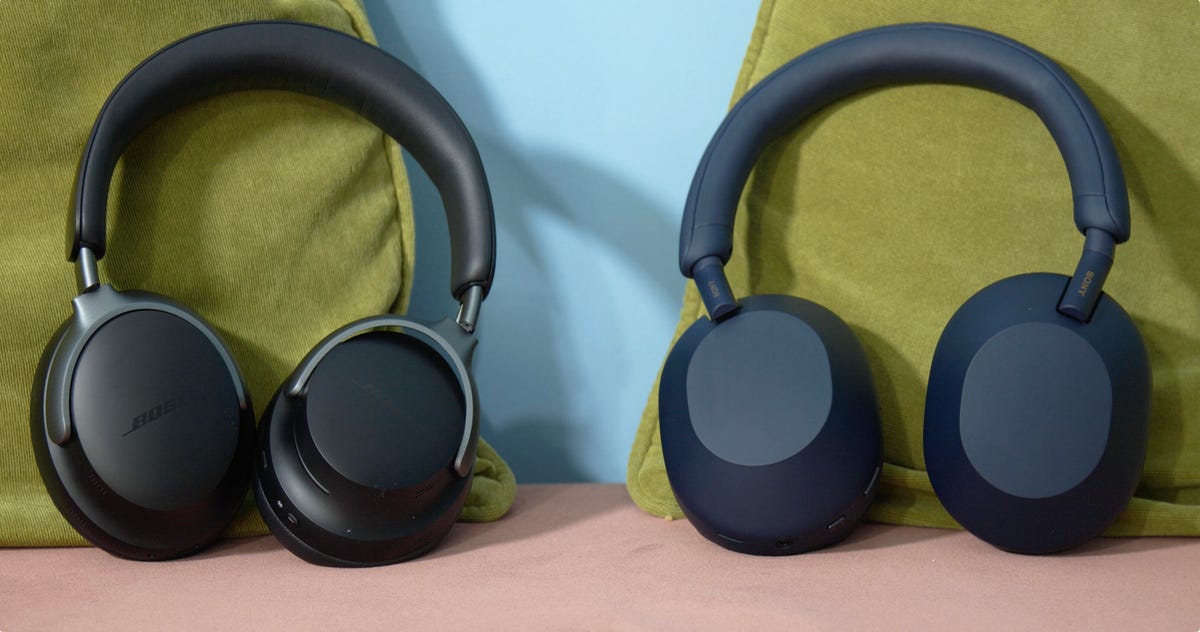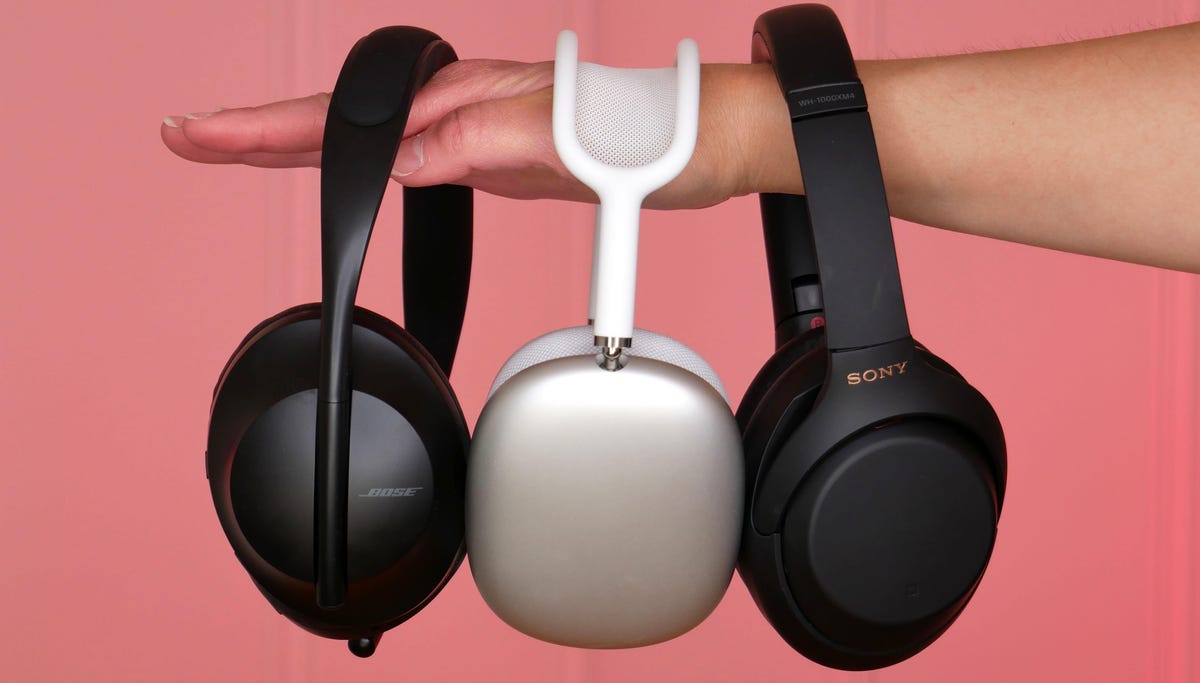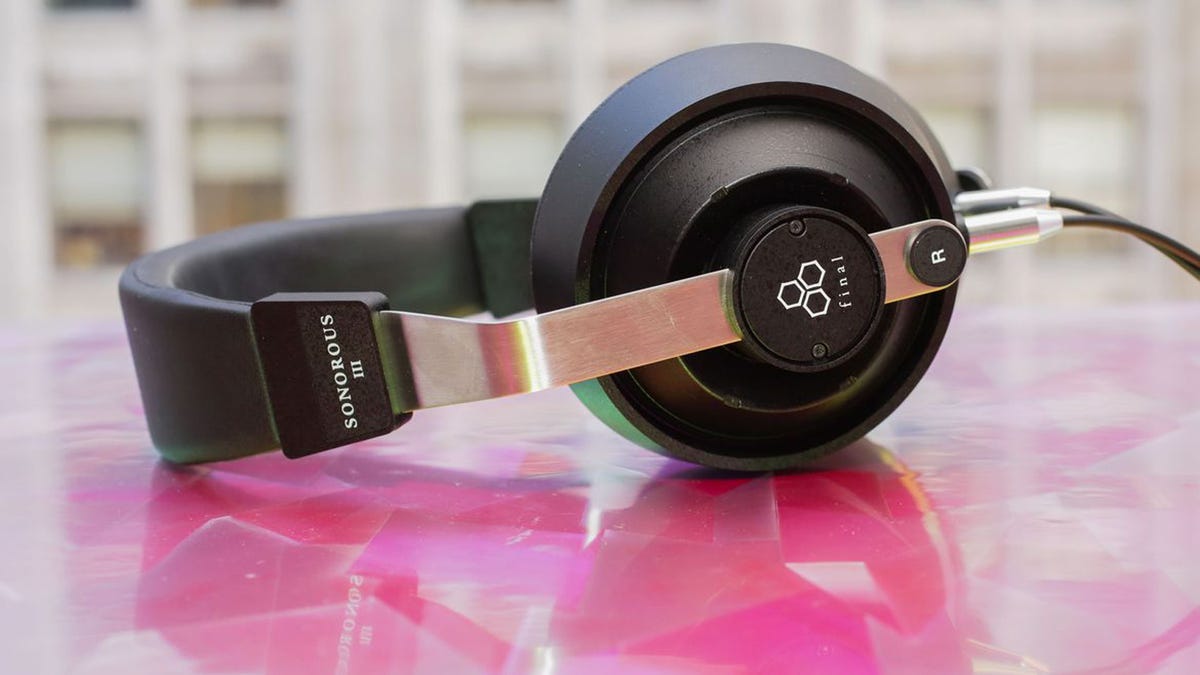Whether you want to watch a movie or YouTube on the go or attend Zoom calls while traveling, you’ll need a good pair of headphones. There are several options to choose from, but before you get down to the specific models, there’s one important question to answer — should you get wired headphones or wireless headphones?
Both wired and wireless headphones have advantages and disadvantages, but which is the better option? A lot of it will come down to the kind of usage you expect, how much money you’re willing to spend, and what kind of audio quality and features you want for your money. There are a few things to consider when comparing wireless headphones with their wired counterparts, all of which we’ll cover below.
Read on to find out whether you need a wired headset or should opt for a wireless headset instead.
Wireless vs. Wired headphones: Sound quality and latency

When it comes to picking between wired and wireless gaming headsets, the primary concern is sound quality. The sound quality of headphones in general, whether they’re wired or wireless headsets, will vary widely. Typically, costlier headphones will sound better, although that’s not a rule of thumb to be followed when purchasing a pair.
If you have two similarly-specced headphones with one being wired and the other one wireless, the sound quality difference will be subtle. If you’re sensitive to sound quality, or your work requires you to pay minute attention to audio quality, these subtle differences may be very noticeable to you.
Another factor to consider is noise cancellation, which can block out background noise and give you better sound quality overall in a wireless pair. Noise-canceling headphones are usually wireless models, and this feature isn’t really found in wired headsets.
A big part of the sound quality is the audio compression, and the ability to play lossless audio. Wireless headphones typically can’t quite do lossless audio. What that means is that if you use a wireless connection for your headphones, there will be at least some loss of quality in the audio.
Lossless audio needs a lot of bandwidth and a particular codec to work, which is easy for a wired pair of headphones but not so much for a Bluetooth pair. Even the wireless models that claim to support lossless audio aren’t quite fully lossless.
The difference in sound quality between wired and wireless headphones is often discussed in tandem with latency. Latency is the delay, measured in milliseconds, that occurs between the actual audio playback on your audio source and the audio actually playing on your headphones. Wired headphones have minimal latency, typically between 5 to 10ms. On the other hand, latency in wireless headphones can range between 15ms and 300ms, and more, depending upon the kind of connection and codec used.
Not all wireless headsets use Bluetooth. Some use the 2.4GHz wireless connection, which typically requires a USB dongle to work. It has better latency than Bluetooth but compatibility can be an issue due to the extra accessory.
Read more: Best Headsets for Working From Home in 2024
Audio codecs and wireless audio performance
Codecs are what encode and decode the audio, and they dictate the sound quality and latency you will get while using a pair of headphones. There are a few codecs you need to consider when shopping for a wireless headset:
- SBC: Sub-band coding, which is a default for Bluetooth headphones. All Bluetooth headphones support it, and it typically has a latency of between 100mm and 200ms.
- AAC: Apple’s Bluetooth audio codec. It’s not particularly low-latency.
- aptX: Qualcomm’s family of proprietary audio codecs for Bluetooth audio. It has a latency of between 100mm and 200ms.
- aptX Lossless: This is a version of aptX designed for lossless audio, and offers CD-like audio quality (16-bit/44.1kHz).
- aptX Low Latency: Also known as aptX LL, this is a version of aptX designed to have low latency for applications like gaming. It promises a latency of under 40ms.
- LDAC: Sony’s proprietary audio codec. It promises adaptive bitrates, but not all devices are properly optimized to utilize it.
The bottom line is if you’re looking to buy a wireless headphone, you need to check whether the devices you plan on using with them support the right codecs for your usage. There are only a few models with support for codecs like the aptX Lossless, which makes picking high-performance wireless headsets more complicated.
With wired headsets, all you need to check is whether your devices have a 3.5mm jack or a USB-C jack, and the rest of the experience is typically hassle-free.
Wired vs wireless headphones: Convenience, repairability, and longevity

The biggest advantage wireless headphones have over wired headphones is the convenience. With wireless headphones, you don’t need to have a wire tethering your head to your phone, laptop or iPad. That doesn’t mean you won’t need a cable at all. Wireless headsets still need to be charged.
With a wireless headphone, you’re likely to need fewer cables overall. Most wireless headphones will need a USB-C cable or, in the case of older AirPods models, a Lightning cable. These are cables you tend to have and carry anyway to charge your devices, and wireless models today, especially the over-the-head ones, get a longer battery life on average.
Wireless headsets also have the advantage of range. While you can get as much range as Bluetooth and more with a cable, it’s not convenient to run long cables just so you can use your headphones. Additionally, some Bluetooth headphones can establish a wireless connection to multiple devices at once. Not just that, wireless headsets often also come with a 3.5mm headphone jack that lets you use them with a wired connection. You can often establish a wired connection with a USB-C cable as well, which can be helpful now that rarely any phones have an audio jack.
So, wireless headphones tend to be more convenient overall, but there’s still a big question about the long-term use of these devices. Wireless headsets have batteries inside, and batteries degrade over time. Wireless headphones need repair down the line, which isn’t as much of an issue as wired headphones. Battery replacements aren’t the end of the world, but it’s something to consider if you’re someone who uses their devices for a long time.
With wireless earbuds, this is an even bigger problem. They’re intricately designed to be as small and light as possible, but that also means it’s difficult to repair and replace batteries for these models. Although repair may be possible, you’ll likely want to replace your wireless earbuds when they don’t return a good battery life anymore. From a longevity perspective, wireless options don’t match wired headphones.
Picking the best headphones for your usage

At the end of the day, it comes down to which headphones are best suited for your usage. There are arguments to be made for and against both wired and wireless headphones with each kind of usage. Generally, a wireless headset is the better option for those who need a pair of headphones on the go, and a wired headset makes more sense for desktop users, and folks who are generally more tethered.
For some scenarios, a wired headset makes more sense. A good example is your choice of a gaming headset while playing competitive video games. Sound plays a crucial role in competitive games, and you already have network lag, input lag on your monitor, and your own reaction time to slow you down. In that case, you would want to keep the audio lag to a minimum. Despite having great hardware, a wireless gaming headset will still have higher latency than wired gaming headsets.
Creative workflow involving audio is also better with wired headphones. For example, if you’re a video editor that needs to sync audio tracks, that little bit of latency can add up to an out-of-sync output. A wireless connection isn’t ideal for such uses because of the inherent increase in latency, so it’s better to choose wired headphones for such uses.
Another use case is for folks who need earbuds. Wireless earbuds are convenient, but wired earbuds offer better overall longevity and improved sound quality. In such cases, it comes down to what is more important to you — convenience or long-term reliability.
So, wired vs wireless headphones; which are better? All things considered, wired headphones are better, simply because they offer better audio performance overall. You can’t put a price on convenience, which means wireless headphones are great for plenty of different uses. They have a long way to go to match the superior sound quality and latency that the wired headsets offer, but there’s steady progress being made, and tons of great wireless headphones you can buy right now.
In the meantime, if you’re looking to buy a pair of headphones right now, check out our picks of the best headphones to buy, as well as the best wireless headphones, and the best wireless earbuds to buy.

